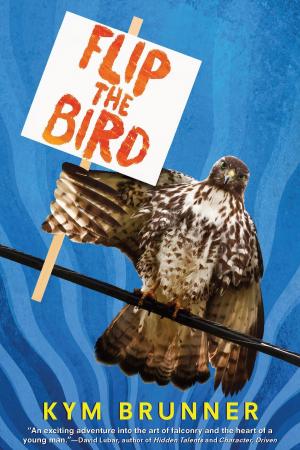How to Raise a Wild Child
The Art and Science of Falling in Love with Nature
Nonfiction, Family & Relationships, Parenting, Science & Nature, Nature| Author: | Scott D. Sampson | ISBN: | 9780544279193 |
| Publisher: | HMH Books | Publication: | March 24, 2015 |
| Imprint: | Houghton Mifflin Harcourt | Language: | English |
| Author: | Scott D. Sampson |
| ISBN: | 9780544279193 |
| Publisher: | HMH Books |
| Publication: | March 24, 2015 |
| Imprint: | Houghton Mifflin Harcourt |
| Language: | English |
**“This timely, significant work carries a far-reaching message for families and the planet.”—Publishers Weekly
“In a time when the connection between humans and the rest of nature is most vulnerable, Scott offers parents and teachers a book of encouragement and knowledge, and to children, the priceless gift of wonder.”—Richard Louv, author of Last Child in the Woods and The Nature Principle**
The average North American child now spends about seven hours a day staring at screens and mere minutes engaged in unstructured play outdoors. Yet recent research indicates that experiences in nature are essential for healthy growth. Regular exposure to nature can help relieve stress, depression, and attention deficits. It can reduce bullying, combat obesity, and boost academic scores. Most critical of all, abundant time in natural settings seems to yield long-term benefits in kids’ cognitive, emotional, and social development. How to Raise a Wild Child is a timely and engaging antidote, offering teachers, parents, and other caregivers the necessary tools to engender a meaningful, lasting connection between children and the natural world.
“With wisdom, intellect, and empathy, [Sampson] provides us with a bounty of simple yet profound ways we can enter this natural world, oftentimes starting in our very own backyards.”—Lili Taylor, actor, mom, and board member of the American Birding Association
“[Sampson] makes a cogent case for the importance of cultivating a ‘nature connection’ in children and offers thoughtful guidance on how to do so amid today's pressures of hectic, high-tech, increasingly urbanized life.”—Scientific American MIND
**“This timely, significant work carries a far-reaching message for families and the planet.”—Publishers Weekly
“In a time when the connection between humans and the rest of nature is most vulnerable, Scott offers parents and teachers a book of encouragement and knowledge, and to children, the priceless gift of wonder.”—Richard Louv, author of Last Child in the Woods and The Nature Principle**
The average North American child now spends about seven hours a day staring at screens and mere minutes engaged in unstructured play outdoors. Yet recent research indicates that experiences in nature are essential for healthy growth. Regular exposure to nature can help relieve stress, depression, and attention deficits. It can reduce bullying, combat obesity, and boost academic scores. Most critical of all, abundant time in natural settings seems to yield long-term benefits in kids’ cognitive, emotional, and social development. How to Raise a Wild Child is a timely and engaging antidote, offering teachers, parents, and other caregivers the necessary tools to engender a meaningful, lasting connection between children and the natural world.
“With wisdom, intellect, and empathy, [Sampson] provides us with a bounty of simple yet profound ways we can enter this natural world, oftentimes starting in our very own backyards.”—Lili Taylor, actor, mom, and board member of the American Birding Association
“[Sampson] makes a cogent case for the importance of cultivating a ‘nature connection’ in children and offers thoughtful guidance on how to do so amid today's pressures of hectic, high-tech, increasingly urbanized life.”—Scientific American MIND















